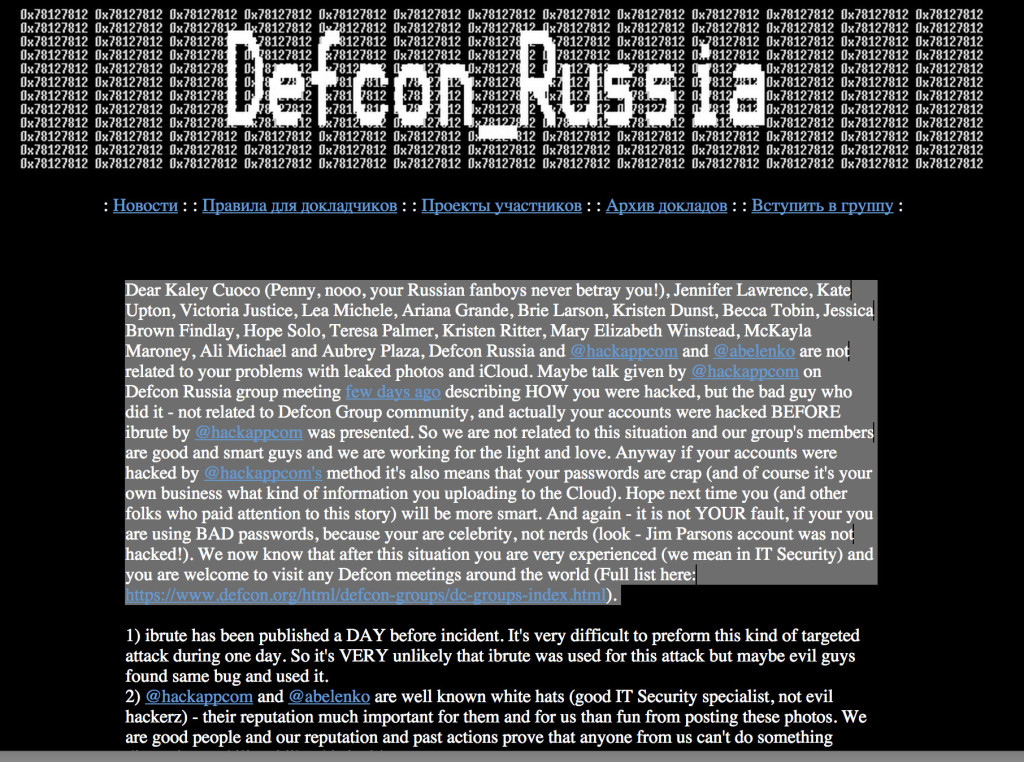There’s a fascinating article on TechCrunch that cites a current (anonymous) Sony Pictures Entertainment employee talking about life at the company in the wake of a crippling November 24th cyber attack that wiped out thousands of computer systems and stole terabytes of data from the company. According to the story, Sony employees have resorted to using circa 1990s fax machines to transmit documents and – horror – having face to face communications in lieu of texting, e-mail or social networking, all of which are disabled within Sony’s environment. [Read more Security Ledger coverage of the Sony Pictures hack here.] “We had barely working email and no voicemail so people talked to each other,” the source tells TechCrunch. “Some people had to send faxes. They were dragging old printers out of storage to cut checks…It was crazy.” “That is what a major corporate security breach sounds like,” TechCrunch writes. “The squeal […]
Europol Warns of Internet of Things Risk
In a newly released report, Europol’s European Cybercrime Center (EC3) warns that the growth of the Internet of Things (IoT) threatens to strengthen the hand of organized cyber criminal groups and make life much more difficult for police and governments that wish to pursue them. EC3’s latest Internet Organized Crime Threat Assessment (iOCTA) says the “Internet of Everything” will greatly complicate the work of law enforcement creating “new opportunities for everything from cyber criminals to state actors to child abusers. The growing numbers of connected devices will greatly expand the “attack surface” available for cyber criminal activity, the EC3 warns. Cyber criminals may co-opt connected devices for use in common criminal activity (like denial of service attacks and spam campaigns). However, advancements like connected (“smart”) vehicles and infrastructure create openings for large scale and disruptive attacks. The report, which was published late last months, is a high level position paper and pulls data mostly […]
Hack Tool Authors Deny Link To Celeb Photo Leaks
With some of Hollywood’s biggest stars issuing statements on Monday condemning the leak of personal photographs online, attention has turned to identifying the source of the leaks. But more than 24 hours after the photos appeared, there are more questions than answers about its source. Early attention has focused on an automated tool that exploited an apparent vulnerability in Apple’s FindMyiPhone feature. But by Monday, there were denials from the makers of that tool that it played any role in the massive privacy breach that saw photos of A-list celebrities like Jennifer Lawrence, Kate Upton and others leaked online. Within hours of the photos’ appearance on the image sharing site 4chan, attention shifted to the cause of the leak and the coincidence of the leaked photos with the publication of iBrute, a simple tool available on GitHub in recent days. According to this published report by Owen Williams over at TheNextWeb, the […]
TRUST: Threat Reduction via Understanding Subjective Treatment
It has become obvious (to me, anyway) that spam, phishing, and malicious software are not going away. Rather, their evolution (e.g. phishing-to-spear phishing) has made it easier to penetrate business networks and increase the precision of such attacks. Yet we still apply the same basic technology such as bayesian spam filters and blacklists to keep the human at the keyboard from unintentionally letting these miscreants onto our networks. Ten years ago, as spam and phishing were exploding, the information security industry offered multiple solutions to this hard problem. A decade later, the solutions remain: SPF (Sender Policy Framework), DKIM (Domain Keys Identified Mail) and DMARC (Domain-based Message Authentication, Reporting & Conformance). Still: we find ourselves still behind the threat, rather than ahead of it. Do we have the right perspective on this? I wonder. The question commonly today is: “How do we identify the lie?” But as machine learning and data science become the new norm, I’m […]
Apple And IBM: The Corporatization of Consumerization
Apple Computer has built up a brand so strong that it borders on being a cult. That is why it is jarring to realize that, at the end of the day, Steve Jobs’ baby is just another company that needs to make its numbers each quarter and keep Wall Street happy. The company’s announcement of an exclusive partnership with IBM is just that: a reminder that Apple’s core business is business, and that the company has been sorely underperforming in a key market: the enterprise. Whatever its faults, IBM is flush with the very things that Apple lacks: the brand, technology, expertise and reach that puts enterprise technology buyers at ease. As we reported, IBM will offer mobile device management, security, data analytics and cross-platform integrations for Apple’s iPad and iPhone that leverage IBM’s cloud services. There will be IBM-managed offerings around mobile device activation, supply and management tailored to businesses. But the partnership is something more- […]





